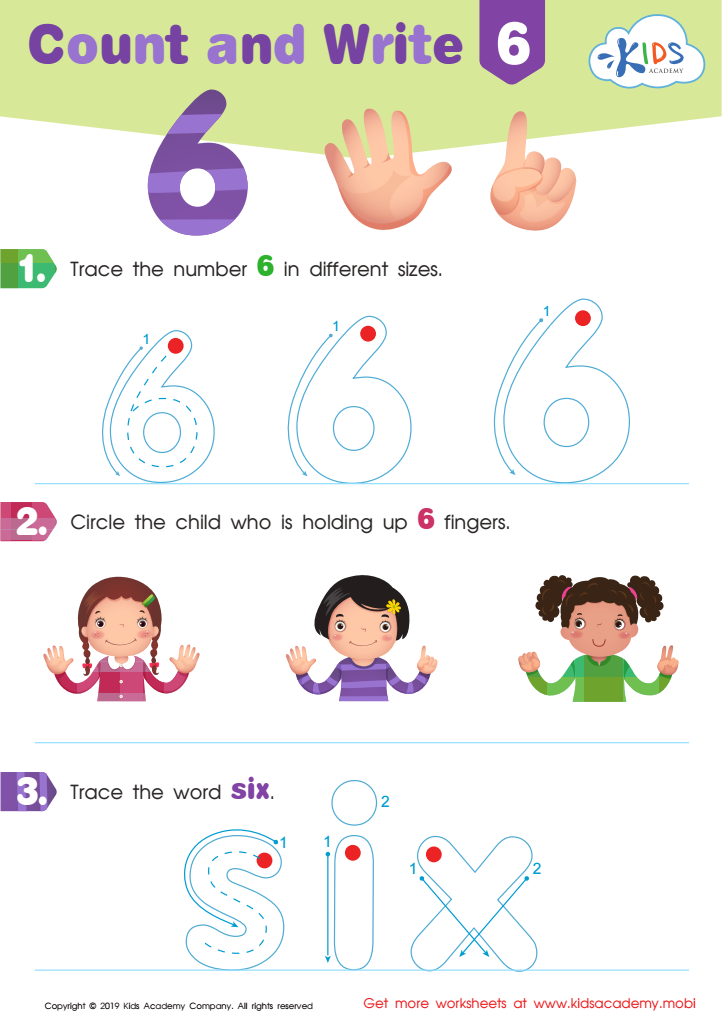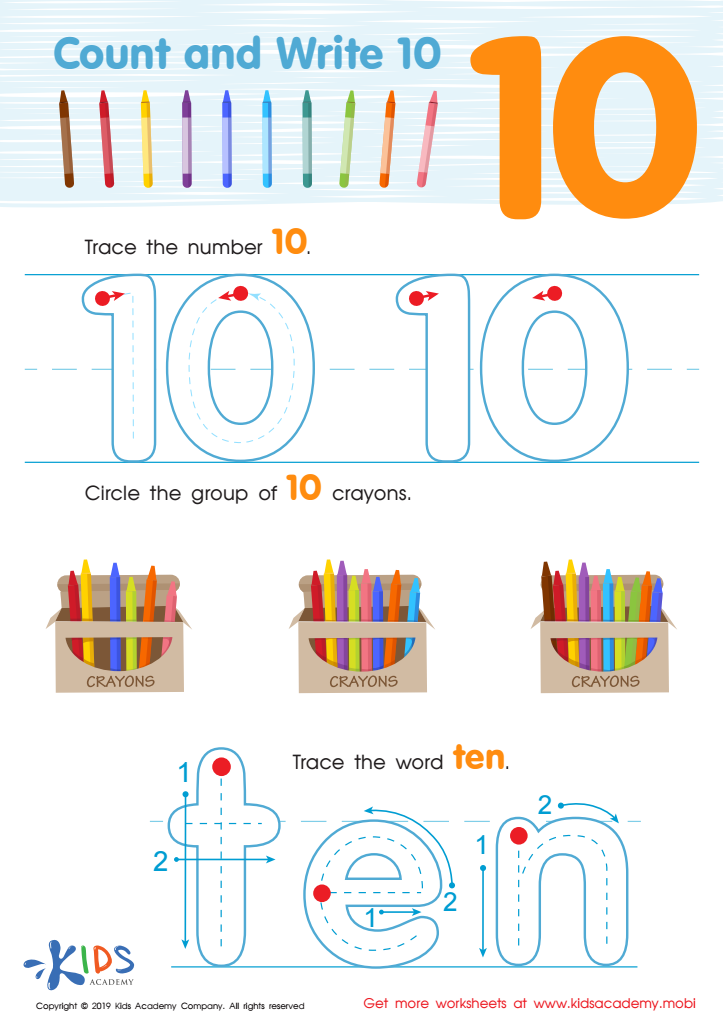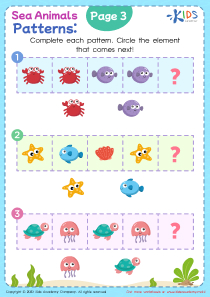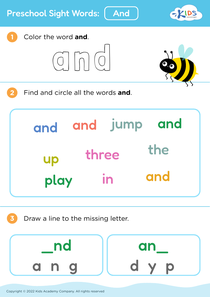Tracing Numbers worksheets activities for Preschool - Page 2
26 filtered results
-
From - To


Count and Write 6 Worksheet


Count and Write 10 Worksheet
Tracing Numbers worksheets activities for Preschool are an essential tool in early childhood education, offering a myriad of benefits that extend far beyond just learning how to write numbers. These carefully designed activities are tailored to meet the developmental needs of preschoolers, ensuring that young learners engage in educational tasks that are both enjoyable and beneficial for their growth.
First and foremost, Tracing Numbers worksheets activities for Preschool help in enhancing fine motor skills. The act of tracing numbers requires control and precision, which strengthens the small muscles in a child’s hand. This development is crucial for other everyday tasks, such as tying shoelaces, buttoning clothes, and improving handwriting skills. As children practice tracing, they gain confidence in their abilities and are encouraged to explore more challenging tasks.
Moreover, these activities serve as an introduction to the world of mathematics. By engaging with numbers in a hands-on manner, children begin to understand the concept of numbers, their order, and their value. This foundational knowledge sets the stage for more complex mathematical thinking and problem-solving skills as they progress through their education.
Tracing Numbers worksheets activities for Preschool also foster cognitive development. As children concentrate on following the lines and shapes of each number, they enhance their focus, attention to detail, and memory retention. These cognitive skills are vital across all areas of learning, from reading and writing to science and social studies.
Furthermore, these worksheets provide an opportunity for early literacy development. Recognizing and writing numbers are crucial skills in learning to read and write. By familiarizing themselves with the shapes and names of numbers, preschoolers are taking the first steps toward literacy.
In conclusion, Tracing Numbers worksheets activities for Preschool are a valuable educational resource. They not only prepare children for future academic success but also support their overall development by improving fine motor skills, introducing mathematical concepts, enhancing cognitive abilities, and laying the groundwork for literacy. Such activities are indispensable in the early years of learning, making them a favorite among educators and parents alike.
 Assign to My Students
Assign to My Students






.jpg)








